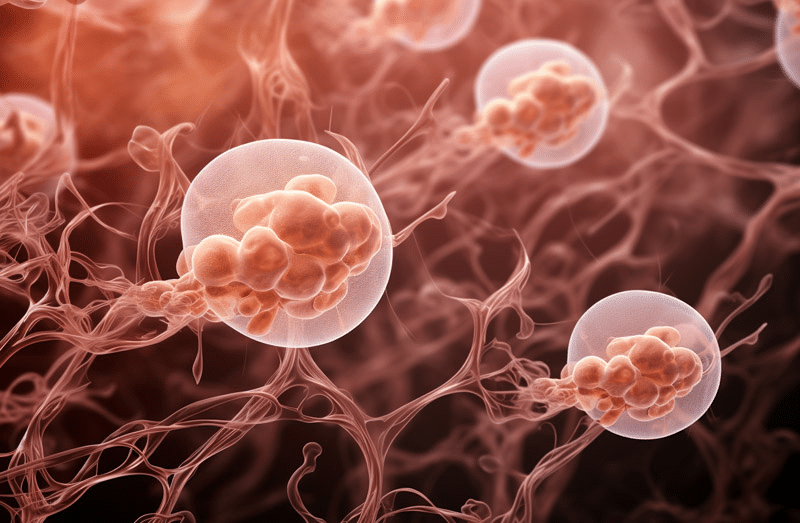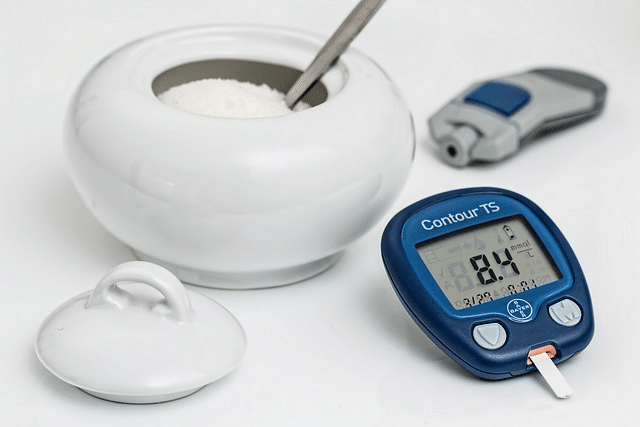DO YOU NEED DIABETIC NEUROPATHY STEM CELL THERAPY?
Diabetes has become one of the most serious medical conditions currently affecting the United States. In fact, chances are that you or someone close to you suffers from some form of diabetes. Whether Type 1 or Type 2, there aren’t many families in America that haven’t had at least one member get this disease in some severity or another. With diabetic neuropathy stem cell treatment only in the beginning phases, not many patients have had the chance to experiment with this new treatment option.
As a result, the U.S. medical industry gouges the public. They force them to pay ridiculous prices for life-saving insulin. This is the main reason scientists devote their time and effort to diabetic neuropathy stem cell research, as neuropathy is a painful condition that is a result of untreated diabetes.
Diabetes – A Nationwide Health Concern
The National Diabetes Statistics Report from the CDC states that 37.3 million people have diabetes, that is 11.3% of the U.S. population. That’s not counting the 96 million people aged 18 years or older who have prediabetes. This means that 38% of the U.S. population has diabetes or is prediabetic. When you look at the number of people aged 65 and older, that statistic goes up to almost half of our senior population.
These statistics are meant to scare you. Yes, you read that correctly! Added to the fact that the rate of self-reported diabetes has increased from 3.3% in 2001 to 4.4% in 2018. Since 1958 the prevalence of diabetic neuropathy diagnosed has skyrocketed by 7.4%. In fact, diabetes is the 7th leading cause of death in the United States. Consequently, it’s now the number 1 cause of kidney failure, lower-limb amputations, and adult blindness.
Diabetic neuropathy can contribute to urinary or sexual problems, impacting the normal functioning of sex organs. Comprehensive care and management strategies are crucial in addressing these specific complications associated with diabetes and its potential impact on reproductive health.
DIABETES NEEDS AN ALTERNATIVE TREATMENT

When you suffer from diabetes you are either not producing enough natural insulin or your insulin function is off. Insulin is a hormone produced by your pancreas that controls the amount of glucose in your liver, fat, and muscles. Insulin also has a necessary function that regulates your body’s metabolism of carbohydrates, fats, and proteins.
Without the correct amount of insulin, people with. diabetes cannot make any fat. Instead, the fat breaks down and produces keto acids. If these acids build up, they can trigger diabetic ketoacidosis, a potentially fatal condition.
Diabetic neuropathy does damage to your nerves that occurs when your body is in a constant state of high blood sugar (glucose). Diabetic neuropathy normally occurs in the hands and the feet and symptoms include severe pain, numbness, loss of function, and sometimes problems with the digestive system, urinary tract, blood vessels, and heart.
Is There More I Can Do Besides Substituting Insulin?
The easiest and most common treatment for diabetes and diabetic neuropathy is a prescription of insulin, to be taken whenever the diabetic’s blood sugar levels become inconsistent. The frequency and amount of insulin that needs to be taken depends on the general health of the diabetic.
Carbohydrate intake is also one of many important factors. Supplemental insulin is a good way to keep your diabetes under control, especially when partnered with exercise and other healthy living habits. As long as you are fortunate enough to be able to afford good health insurance, or poor enough to qualify for government assistance you shouldn’t have any problems managing your diabetes with insulin.
The application of diabetic neuropathy stem cell therapy offers promising prospects for addressing autonomic neuropathy, a common complication associated with diabetes. Diabetic neuropathy can manifest in various forms, affecting multiple bodily systems, such as the blood pressure regulation, urinary or sexual functions, focal neuropathy in specific nerves, and the digestive tract.
Understanding and addressing risk factors are essential in preventing nerve disease that may impact internal organs, highlighting the significance of nerve conduction studies in the comprehensive management of diabetic complications
GREED IN THE PHARMACEUTICAL INDUSTRY

A young man named Alec Smith was a type 1 diabetic who worked as a restaurant manager in Minnesota. At the time he turned 26 years old he no longer qualified to be on his mother’s insurance. As a result, he set out to find a plan he could afford. The young man discovered that the only plan that the cheapest plan available to him came with a $7,600 deductible and the monthly premium was approximately $440.
With no possibility of being able to afford that premium, Alec decided to try to buy his insulin out of pocket. After discovering the ridiculous price of insulin while not covered by insurance, Alec attempted to ration the amount of insulin he took. He hoped he could save up enough money to afford the insurance. A few weeks later, Alec died from diabetic ketoacidosis.
This is just one story out of many regarding the victims of the pharmaceutical companies’ greed. The companies that produce insulin know that so many people need their product to survive so they charge outrageous prices for it. The desperate need for a lifesaving insulin is not a luxury item. People need it to live and they’ll pay big bucks for it. The manufacturers of insulin know that patients who need it will spend whatever it takes to acquire it, regardless of price. It is a matter of life and death.
DIABETIC NEUROPATHY STEM CELL TREATMENT

Diabetic Neuropathy is a condition that happens when nerves outside the central nervous system are damaged by high blood sugar. This nerve damage decreases the nerve’s ability to send signals to the brain. Symptoms of diabetic neuropathy include tingling, numbness, burning, and pain. There are different types of diabetic neuropathy all with different symptoms that are all brought on by unregulated insulin levels in the body.
Stem cells have been used and researched regarding their ability to transform (differentiate) themselves into other cells in the human body. There are two main types of stem cells that are used in regenerative medicine – embryonic and adult stem cells. Embryonic stem cells are pluripotent stem cells, meaning that they have the ability to differentiate themselves into literally any other kind of cell located in the human body. Embryonic stem cells must be harvested from a human embryo only a few days after fertilization. (Keller, 2005)
On the other hand, adult stem cells are much easier to come. After all, they’re located in the fatty tissue, and bone marrow of adult humans as well as umbilical cords. Adult stem cells are known as mesenchymal stem cells (MSCs). In the past, researchers believed MSCs could only differentiate themselves into similar cells. However, now researchers have discovered that they are much more versatile than originally believed. (James Ankrum, 2010).
DIABETIC NEUROPATHY STEM CELL TREATMENT AT STEM CELL LA

The research into diabetic neuropathy stem cell treatments has been very promising. With stem cells having the ability to become another type of cell, this gives stem cells an unparalleled ability to regenerate damaged tissue, even peripheral neuropathy, so says the National Stem Cell Clinic.
One study by the Journal of Cell Death Discovery, even states “MSC treatment reverses manifestations of diabetic neuropathy. MSCs have an important role in repairing tissue and lowering blood glucose levels. MSCs even paracrinely secrete neurotrophic factors, angiogenic factors, cytokines, and immunomodulatory substances to ameliorate diabetic neuropathy” (J Y Zhou, 2016).
Stem Cells Are Not a Miracle Cure-All
However, stem cells are not some kind of miracle cure-all. Other clinics or shady practitioners may try to tell you that, but at Stem Cells LA, we are not going to lie to you or feed you a line of BS. Like most stem cell research, diabetic neuropathy stem cell treatment is still in the very early stages of testing and development.
In comparison to other neuropathy treatments, there has been very little research done into the effectiveness of stem cells. What we can tell you, and what you can read for yourself, is that the research that has been done is very promising. While not conclusive, it’s quite possible that stem cells can improve symptoms of diabetic neuropathy.
Stem Cells LA is a stem cell information center & stem cell treatment provider to those who are seeking them. If you have diabetic neuropathy and are willing to experience the benefits of this therapy, call us today.
DIABETIC NEUROPATHY STEM CELL THERAPY PROVIDERS

Stem Cells LA may be able to help address your arthritis, neuropathy, orthopedic disease, anti-aging, diabetic neuropathy, and more. Additionally, the restorative properties of stem cell treatments may help reduce healing time for other procedures including hair transplants and various injuries.
At Stem Cells LA, we’re happy to provide informational services and connect you with a cell therapy provider. They’ll help you determine if stem cell therapy is right for you and your unique situation. Please keep in mind that stem cells are NOT FOR EVERYONE.
Some people are candidates for stem cell procedures and others are not. We believe in the power of stem cells but at Stem Cells LA, we don’t do cures. However, we do add a very valuable tool to your wellness toolbelt.
It’s important to look into the patient experience. Your safety, privacy, and well-being are of the utmost importance to us. Remember, we’re here for you! Above all, only a qualified doctor can help you decide if stem cell therapy is right for you. We may be able to help set you up with a trusted regenerative medicine specialist. To book a consultation, call us today.
Contact Stem Cells LA for More Info
Stem Cells LA
(310) 281-6160 1970 S. Prospect Ave., Suite 2
REFERENCES:
J Y Zhou, Z. Z. (2016). Mesenchymal stem cells to treat diabetic neuropathy: a long and strenuous way from bench to the clinic. Cell Death Discovery.
James Ankrum, J. M. (2010). Mesenchymal stem cell therapy: Two steps forward, one step back. Trends in Molecular Medicine.
Keller, G. (2005). Embryonic stem cell differentiation: Emergence of a new era in biology and medicine. Genes & development.


